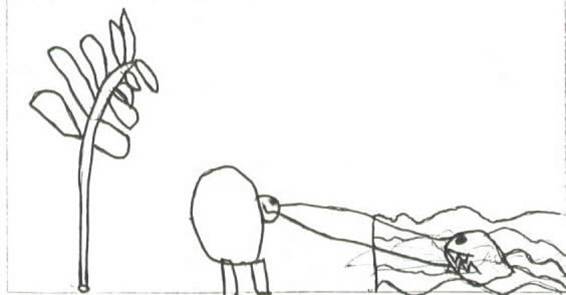|
“The simplest way of dealing with a paragraph or a chapter is to require the child to narrate its contents after a single attentive reading.” ~ Charlotte Mason
Charlotte called narration ”the act of knowing.” Children tell back or write what they just heard or read. Here are some narrations to give you an idea of what narrations might look like. One of these narrations was told by a dyslexic child who could not read or write for several years but he could listen and narrate. Many examples of narrations are found in the back of the Charlotte Mason Study Guide. Topic #9 in the Study Guide contains direct quotes from Charlotte Mason on narration, suggestion for further reading in Mason’s series, and several helpful articles on narration.
See some other types of narrations.
Winston Churchill on examinations in school: “I should have liked to be asked to say what I knew. They always tried to ask what I did not know. When I would have willingly displayed my knowledge, they sought to expose my ignorance. This sort of treatment had only one result: I did not do well in examinations.” (from My Early Life, page 15) Narration is a chance to show what you know.
The Elephant's Child
based on Just So Stories by Rudyard Kipling
by Logan, age 6
The elephant wanted to know what crocodiles eat for supper. So the elephant went to the river to see what they eat.
The crocodile winked with one eye and then with the other eye. The elephant said, ”I just want to know what crocodiles eat.”
The crocodile said, ”Come here and I'll tell you.”
The elephant got close. Then the crocodile bit his nose. The crocodile pulled. And the elephant pulled the other way. The elephant's nose got longer and longer when they both pulled.
The elephant got away. Then the elephant went home to his mother and father and brothers and sisters. He kissed them all.
King Alfred and his Army
by Colton, age 8
Once King Alfred's enemies attacked him so many times that if they attacked him one more time the enemies would have been rulers of England.
Once King Alfred dressed up like a shepherd. He wandered far. Then he came to a woodcutter's hut and begged for something to eat. He knocked at the door begging for food. The woodcutter's wife opened the door. If King Alfred watched the cakes and made sure they didn't burn, then the wife would give him some supper. Then she went out to milk the cow.
King Alfred tried to keep his mind on the cakes but he kept thinking about the war. When the woodcutter's wife came back in, the house was full of smoke and the cakes were burned to pieces.
The woodcutter's wife yelled at King Alfred and said, ”Now, none of us will have any supper because of you.”
Then the woodcutter came home. He recognized the stranger by the stove. He said to his wife, ”This is King Alfred.”
The woodcutter's wife bowed to King Alfred's feet and said, ”I'm sorry that I yelled at you.”
King Alfred said, “I didn't look at the cakes. I deserved it.”
Archimedes
by April, age 11
Archimedes was the greatest scientist that ever lived. He discovered tons of stuff. When he was working on a problem, he forgot about eating and bathing. One time, a king had a goldsmith make a crown out of pure gold. When it was done, the goldsmith delivered it to him. The king thought that maybe the gold wasn't pure gold. So he had Archimedes see if it was pure. Archimedes didn't really want to but he had to.
He didn't know how to see if it was pure gold or not. He sat there for days and days just staring at it. He forgot to bathe and he got so scraggly and dirty that finally his servants dragged him through the town with Archimedes screaming, “I have more important things to do!”
When they got to the bath place, the guy that was filling up the water was so entertained by Archimedes’ screaming that he filled the tub too much--to the brim. When Archimedes got into the bathtub, some water spilt out. Then he jumped out and ran through town naked shouting, ”Eureka!”
Then he filled up a little bucket of water. He put a pan underneath it to catch the water that spilled out. The king gave him a lump of gold that was exactly the same size and weight as the one he had given to the goldsmith to make the crown. Archimedes put the crown in the bucket. He measured how much water came out.
Then he filled the bucket up again and put the lump of gold in. The amounts of spilled water were different. So Archimedes knew that the goldsmith had put silver in the crown. His discovery was very great.
|